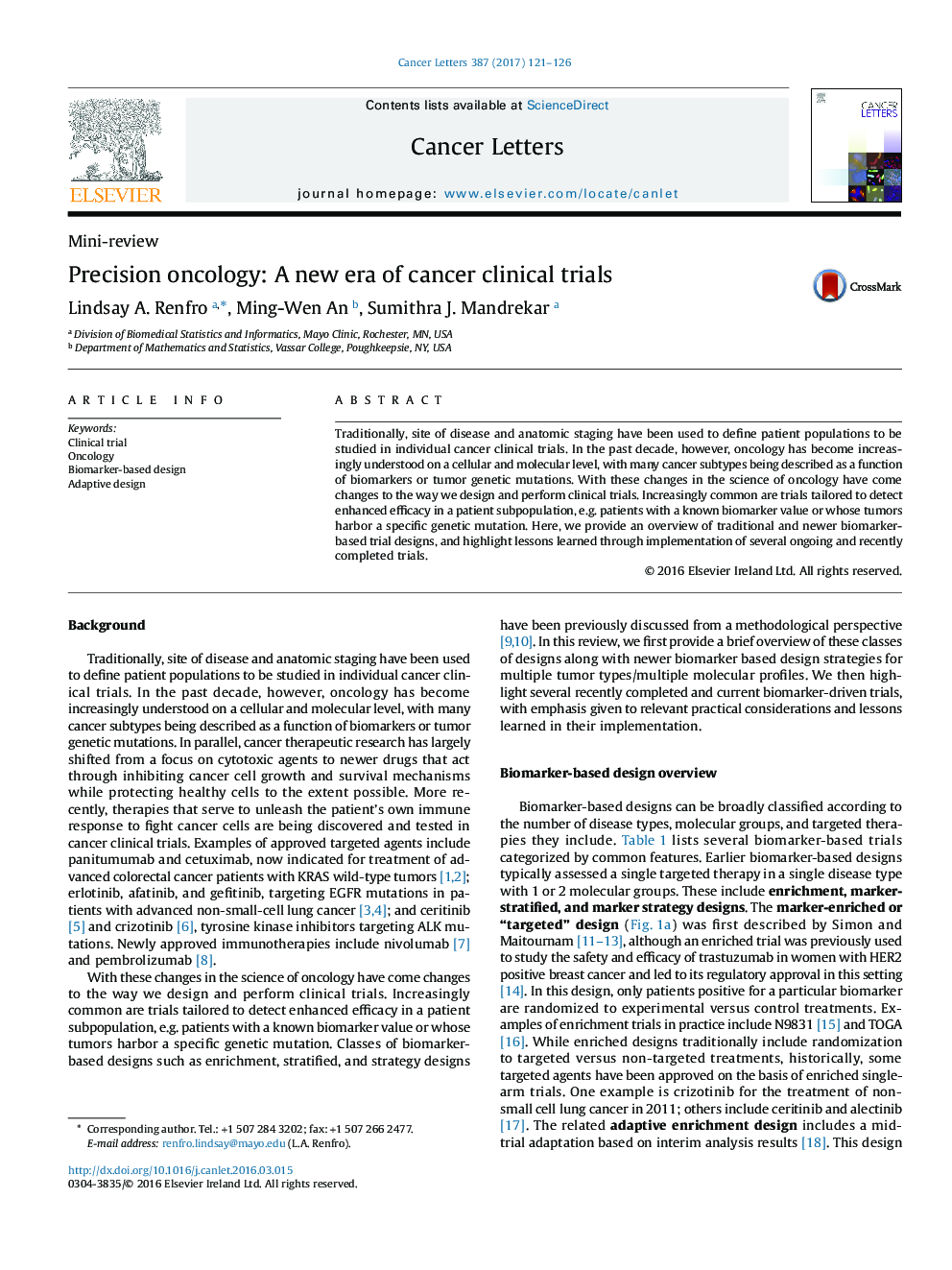| Article ID | Journal | Published Year | Pages | File Type |
|---|---|---|---|---|
| 5525446 | Cancer Letters | 2017 | 6 Pages |
â¢Cancer genetics and biomarkers now considered jointly with histology, organ and stage of disease.â¢Changing paradigms of cancer definition and treatment strategies necessitate new trial designs.â¢Successes and challenges identified from recent biomarker-based designs provide insight.
Traditionally, site of disease and anatomic staging have been used to define patient populations to be studied in individual cancer clinical trials. In the past decade, however, oncology has become increasingly understood on a cellular and molecular level, with many cancer subtypes being described as a function of biomarkers or tumor genetic mutations. With these changes in the science of oncology have come changes to the way we design and perform clinical trials. Increasingly common are trials tailored to detect enhanced efficacy in a patient subpopulation, e.g. patients with a known biomarker value or whose tumors harbor a specific genetic mutation. Here, we provide an overview of traditional and newer biomarker-based trial designs, and highlight lessons learned through implementation of several ongoing and recently completed trials.
